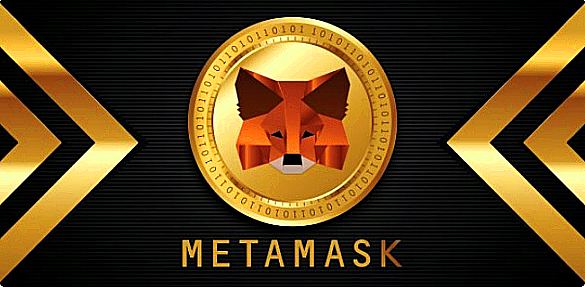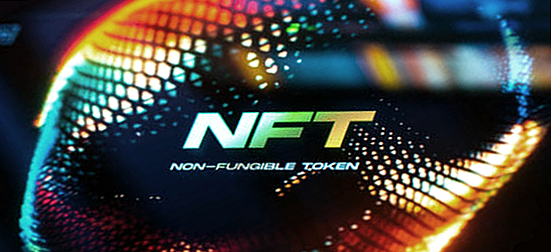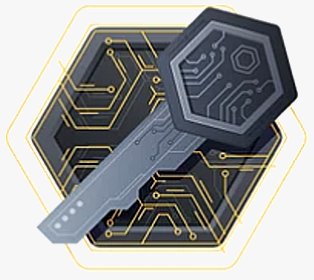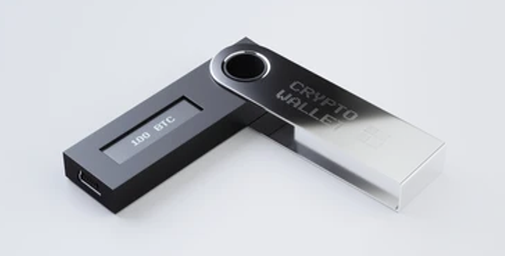Accredited InvestorsAltcoinAnatoli UnitskyAnti-Money Laundering (AML) In CryptoAPIArbitrageArtCoin TokenArticle DirectoryASICAuction Terminology GlossaryBasics of Stock Market InvestingBear MarketBest Crypto Payment Provider In the WorldBitcoinBlockchainBlockchain ConfirmationBlockchain Consensus MechanismBlockchain ForkBlockchain GlossaryBored Ape Yacht ClubBuild a Business That OutperformsBull MarketBuying SkyWay SharesByzantine Fault Tolerance (BFT) ExplainedCasascius CoinCentral Bank Digital Currency (CBDC)Centralized Crypto ExchangeCoinCoinsetCold WalletCollateralCommodity Futures Trading Commission (CFTC)Cross-Chain TechnologyCRUCrypto ExchangeCrypto GlossaryCrypto JokesCrypto Terms to KnowCrypto TickerCryptocurrencyCryptographyCryptojackingCryptounit BlockchainCryptounit GlossaryCryptounit ProgramdApp (Decentralized Application)Dead CoinDecentralized Exchange (DEX)Decentralized Finance (DeFi)Difference Between Bitcoin and EthereumDifferent Ways of Investing MoneyDigital CurrencyDistributed LedgerDo Your Own Research (DYOR)Dollar Cost Averaging (DCA)Dow Jones Industrial Average (DJIA)EncryptionERC-20ERC-721EthereumEvoScentFear Of Missing Out (FOMO)Fear, Uncertainty and Doubt (FUD)Fiat MoneyFNT Fintech CompanyGenesis BlockGlobal Unit PayGlossary of Banking TermsGlossary of Business TermsGlossary of Financial TermsHalvingHODLHot WalletHow Do I Start InvestingHow Rich is Satoshi Nakamoto?How to Create a BlockchainHow to Find Private InvestorsHow to Get Into FintechHow to Program Smart ContractsI Am Thrilled to Be a Part of This Global ProjectInitial Coin Offering (ICO)Initial Public Offering (IPO)Initial Token Offering (ITO)Innovation Basalt TechnologyInnovative Transportation TechnologiesInternational Bank Account Number (IBAN)Investing in Gold Mining StocksInvesting in Gold MiningJagerJoy of Missing Out (JOMO)Know Your Customer (KYC)LedgerLiquidity in CryptocurrencyMaker and Taker Fees in Crypto TradingMarket Capitalization (Market Cap)Meme CoinMetal Credit CardMetaMaskMillenials Now Have Access to Generational WealthMy Best Investment EverNew Digital EvolutionNFT GlossaryOff-Chain TransactionsOn-Chain TransactionsOpen Edition NFTPeer-to-Peer (P2P)Personal Loan GlossaryProbably the Best STO on the MarketProof of Stake (PoS)Real Estate Glossary of TermsReal Estate Investing GlossaryRebase TokenSecurities and Exchange Commission (SEC)Security Token ExchangesSecurity Token Offering (STO)Soulbound Decentralized Identities for Security TokensSoulbound ID Launch by Stobox Proves a SuccessSoulbound TokensStoboxStock Market GlossaryTestimonialsTether Platform and Token (USDT)UnitEx ExchangeUnitsky String TechnologiesUNTBUSDUValidatorWe Started Investing When We Were 25What are Blue Chip NFT?What are Blue Chip Stocks?What are Crypto Assets?What are Crypto Smart Contracts?What are CryptoPunks NFT?What are Digital Assets?What are Digital Collectibles?What are Gas Fees?What are Gas Wars?What are Hashmasks?What are Non Fungible Tokens?What are Non-Sufficient Funds (NSF)?What are Soulbound Tokens (SBT)?What are Stablecoins in Crypto?What are Transactions Per Second (TPS)?What are Utility NFTs?What are Utility Tokens?What Does Burning Crypto Mean?What Does Diamond Hands Mean?What Does Paper Hands Mean?What Does To The Moon Mean?What Does WAGMI Mean?What Happened to Satoshi Nakamoto?What is a 51% Attack?What is a Baby Boomer?What is a Backlink?What is a Banner?What is a Barcode?What is a Bid-Ask Spread in Crypto?What is a Block in Blockchain?What is a Block Reward?What is a Blockchain Address?What is a Blockchain Node?What is a Blockchain Oracle?What is a Blog?What is a Bond?What is a Bot?What is a Broker?What is a Business Accelerator?What is a Cash Cow?What is a Commercial Bank?What is a Commodity?What is a Con?What is a Credit?What is a Credit Limit?What is a Credit Rating?What is a Crypto Airdrop?What is a Crypto Bridge?What is a Crypto Scam?What is a Crypto Token?What is a Crypto Wallet?What is a Crypto Whale?What is a Crypto Winter?What is a Cryptocurrency Public Ledger?What is a Cryptocurrency Roadmap?What is a DAO?What is a Dark Pool?What is a Day Trader?What is a Dead Cat Bounce?What is a Default?What is a Derivative?What is a Digital Credit Card?What is a Fiscal Quarter?What is a Fungible Token?What is a Governance Token?What is a Grace Period?What is a Hard Fork?What is a Hot Wallet?What is a Hybrid Blockchain?What is a Hybrid PoW/PoS?What is a Joint Account?What is a Market Cap?What is a Merkle Tree in Blockchain?What is a Mining Farm?What is a Nonce? What is a PFP NFT?What is a POS System?What is a Prepaid Card?What is a Private Blockchain?What is a Private Key?What is a Public Blockchain?What is a Public Key?What is a Reserve Currency?What is a Ring Signature?What is a Routing Number?What is a Rug Pull in Crypto?What is a Safe Deposit Box?What is a Satoshi?What is a Security Token?What is a Seed Phrase?What is a Shitcoin?What is a Sidechain?What is a Soft Fork?What is a Spot Market?What is a State Bank?What is a SWIFT Code?What is a Tax Identification Number (TIN)?What is a Time Deposit?What is a Transaction Account?What is a Variable Interest Rate?What is a Virtual Assistant (VA)?What is a Virtual Card?What is a Virtual Currency?What is a Visa Card?What is a Whitelist in Crypto?What is a Whitepaper?What is Accounts Payable (AP)?What is AMA in Crypto?What is Amortization?What is an Accrual?What is an ACH Transfer?What is an Actuary?What is an Addendum?What is an Algorithm?What is an Angel Investor?What is an Annuity?What is an Asset?What is an ATM?What is an Atomic Swap?What is an Audit?What is an Avatar?What is an EIN?What is an Embargo?What is an Entrepreneur?What is an IDO (Initial Dex Offering)?What is an Interest Rate?What is an Internet cookie?What is an Investment Bank?What is an NFT Drop?What is an NFT Floor Price?What is an Ommer Block?What is an Orphan Block?What is an Outstanding Check?What is an Overdraft?What is Artificial Intelligence (AI)?What is B2B (Business-to-Business)?What is B2G (Business-to-Government)?What is Bartering?What is Bitcoin Dominance?What is Bitcoin Pizza Day?What is Blockchain Immutability?What is Blockchain Used For?What is BRICS?What is Business-to-Consumer (B2C)?What is C2C (Customer to Customer)?What is Capitalism?What is Catfishing?What is CFD Trading?What is Check Kiting?What is Cloud Mining?What is Communism?What is Content Marketing?What is Decentralization in Blockchain?What is DeFi in Crypto?What is Delisting?What is Depreciation?What is Digital Marketing?What is Diversification?What is Double Spending?What is Dumb Money?What is Dumping?What is Earnings Per Share (EPS)?What is Economics?What is Email Marketing?What is Equity?What is Etherscan?What is Fintech?What is Foreign currency?What is Forex?What is Fundamental Analysis (FA)?What is GameFi?What is Generative Art NFT?What is Gwei?What is Hard Currency?What is Hash Rate?What is Hashing in Blockchain?What is Inflation?What is Initial Game Offering (IGO)?What is Interest?What is Interest Income?What is Mainnet?What is Mastercard?What is Metaverse in Crypto?What is Mining in Cryptocurrency?What is Minting NFT?What is Mobile Banking?What is Money Laundering?What is NFT Alpha?What is NFT Metadata?What is NFT Rarity?What is NGMI Meaning?What is Nominal Interest Rate?What is Online Banking?What is Open-End Credit?What is OpenSea NFT Marketplace?What is Personal Identification Number (PIN)?What is Play-to-Earn?What is Polygon?What is Proof of Authority (PoA)?What is Proof of Work (PoW)?What is Public Key Cryptography?What is Pump and Dump?What is Quantum Computing?What is Refinancing?What is Retail Banking?What is Ripple?What is Sharding?What is Slippage in Crypto?What is Smart Money?What is Solvency?What is Soulbound ID?What is SSL?What is Staking in Cryptocurrency?What is Technical Analysis (TA)?What is Testnet?What is the Ask Price?What is the Better Business Bureau (BBB)?What is the Bid Price?What is the Dark Web?What is the InterPlanetary File System (IPFS)?What is the Gold Standard?What is the Lightning Network?What is the Prime Rate?What is the Sandbox?What is the Secondary Market?What is the World Bank?What is Tier 1 Capital?What is Tokenomics?What is TRC-20?What is Universal Banking?What is Unspent Transaction Output (UTXO)?What is Usury?What is Volatility in Crypto?What is Wash Trading?What is Web3?What is Whisper?What is XRP?What is Zero-Knowledge Proof (ZKP)?Who is Beeple?Who is Satoshi Nakamoto?Who is Vitalik Buterin?Why Tokenization is a Safe HavenWhy You Should Try Your Hand at Trading
MetaMask
- Home
- Blockchain Glossary
- MetaMask
MetaMask is a well-known cryptocurrency wallet that supports a wide variety of Ethereum-based tokens as well as non-fungible tokens (NFTs) on supported blockchains. While experienced crypto investors may appreciate the wallet's speed and simplicity, inexperienced investors may find it challenging to use.

Furthermore, the wallet does not support Bitcoin, which makes it unappealing to investors whose sole investment is Bitcoin.
MetaMask is a browser plugin that is installed in the same way as any other browser plugin. It allows users to store Ether and other ERC-20 tokens, permitting them to transact with any Ethereum address.
Though it may appear sophisticated to newcomers, MetaMask is one of the easiest Ethereum wallets and dApp browsers to use, and can be set up in most cases in a matter of minutes.
MetaMask Security
In 2022, MetaMask hired Halborn security researchers to assist them in identifying vulnerabilities in their systems. The researchers identified a serious security weakness in previous versions of the cryptocurrency wallet. The vulnerability affected all MetaMask browser versions up to 10.11.3 as well as OS systems (but not the mobile version).
MetaMask is an internet-connected cryptocurrency wallet. This makes it more vulnerable to hacking, theft, and phishing attacks than offline wallets. For example, if you fall for a phishing email that infects your device with a keylogger or virus, your credentials and assets could be stolen.
Browser plugins or extensions function through your browser and are always connected to the internet. Because MetaMask is an online wallet, your browser will collect information about how and when you use it. This may pose a privacy risk for cryptocurrency users.
In addition, MetaMask stores private keys in your browser. While this makes the app easier to use, it poses significant risks if your browser is compromised.
The security of MetaMask is determined by the security of the device on which you keep the wallet, the safety of your phrase key, and your ability to detect a phishing email.
Ways to Use MetaMask Safely
Keep your passwords out of your browser - If your browser or device is compromised by malware, your saved passwords may be exposed. If your device is stolen, your MetaMask funds are also at risk. Keep your passwords and login information safe with a password manager.
Use a hardware wallet - Store your coins in a hardware wallet and sync them with MetaMask. Since your private keys and coins are stored offline, a hardware wallet is less risky than a digital wallet.
Scan for malware - Malware can infiltrate your data. It has the capability of overriding your system, stealing your passwords, and causing your device to malfunction. The most frightening aspect is that malware frequently goes undetected.
Learn to spot a scam - Phishing attacks are most likely the simplest technique to steal a crypto wallet. Your assets could get stolen if you click on a link that downloads malware onto your device. A phishing link may also redirect you to a fake MetaMask website in order to obtain your wallet credentials. Always download MetaMask from its official website and don't click on links in text messages or emails without double-checking the address first.
Privacy and Anonymity
Anonymity is one of MetaMask's top priorities. This wallet, unlike centralized crypto exchanges that require users to meet KYC standards, does not require users to input personal information. However, the wallet warns that transactions are not entirely anonymous, and exchanges are classified as pseudonymous. Because transactions are recorded on the public blockchain, the wallet ID serves as the user's pseudonym.
Despite being one of the most popular Ethereum wallets, MetaMask's customer service is confined to technical concerns encountered when using the wallet on a personal device. While support is not live, users can seek assistance through the self-help center, community discussion board, email, or ticket system.
Pros
- Simple - Instead of managing private keys, users only need to memorize a string of words, and transactions are signed on their behalf.
- Popular - Because it is widely utilized, users simply need one plugin to access a wide range of dapps.
- Integrated - dApps are built to integrate with MetaMask, making it considerably easier to transmit Ether in and out.
- Saves space - Users do not need to download the Ethereum blockchain since MetaMask sends queries to nodes that are not on their machine.
Cons
- Third-party - MetaMask stores private keys within the browser of the user. This is less secure than a hardware or paper wallet, but it is a good trade-off for the ease-of-use.
Related Articles

What is a Crypto Wallet?
A crypto wallet, also known as a digital wallet, is a software program that stores private and public keys for various cryptocurrencies. These keys are used to access, send, and receive digital assets on...

What are Non Fungible Tokens?
NFTs offer a variety of uses. They are, for example, an excellent vehicle for digitally representing actual assets such as real estate and artwork. Because they are based on blockchains, they can also...

ERC-20
ERC-20 is the technical standard for any token supported by the Ethereum network.

What is a Private Key?
Crypto keys are classified as either public or private. A private key is comparable to a password. As a result, it is a crucial security element for protecting funds from unauthorized access. It is important to...

Cold Wallet
Many cold wallets (also called hardware wallets) are physical devices that look similar to a USB drive. This kind of wallet can help protect your crypto from hacking and...
- Home
- Blockchain Glossary
- MetaMask